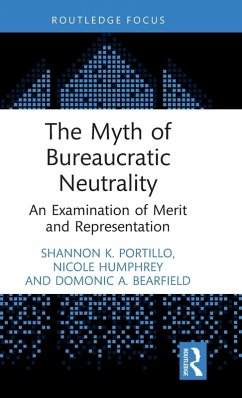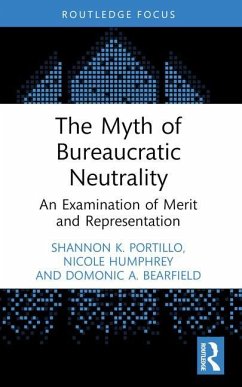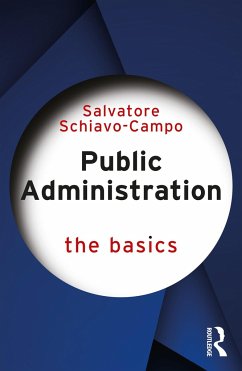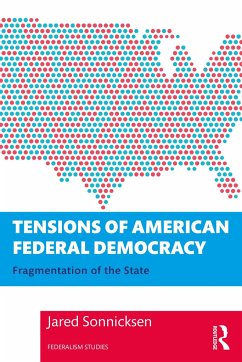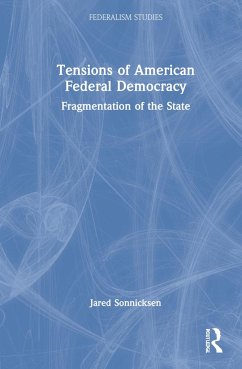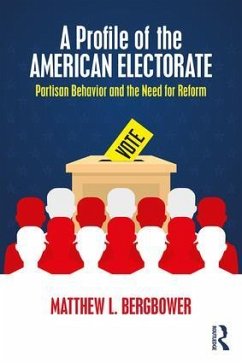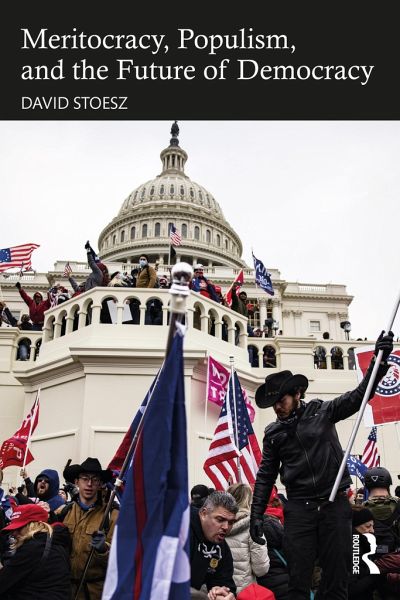
Meritocracy, Populism, and the Future of Democracy
Versandkostenfrei!
Versandfertig in 6-10 Tagen
41,99 €
inkl. MwSt.
Weitere Ausgaben:

PAYBACK Punkte
21 °P sammeln!
This book explores the fundamental shift that has occurred in America and Britain as elites accumulate unprecedented capital and influence and a meritocracy has emerged to manage national affairs, a change that means opportunity, affluence, and power have migrated away from most of the population.Arguing the following four points:Geography accounts for the accumulating influence of metropolitan regions, at the expense of smaller cities and rural communities of the heartland.Occupational groups, particularly lawyers, physicians, and financiers, have constructed professional cartels to secure re...
This book explores the fundamental shift that has occurred in America and Britain as elites accumulate unprecedented capital and influence and a meritocracy has emerged to manage national affairs, a change that means opportunity, affluence, and power have migrated away from most of the population.
Arguing the following four points:
Geography accounts for the accumulating influence of metropolitan regions, at the expense of smaller cities and rural communities of the heartland.
Occupational groups, particularly lawyers, physicians, and financiers, have constructed professional cartels to secure rents at the expense of the prosperity of the public.
Think tanks and universities have become the necessary pathways to attain leadership in public affairs.
The internationalization of commerce has contributed to a parallel network of economic institutions and think tanks sharing ideas and personnel to lobby for policies favorable to their sponsors.
Stoesz connects present and past to look at the progressive-era, the history of professions, and questions of welfare state reform, post-neoliberalism, and marketization. His book will be of great interest to students of sociology, political science, public administration, social policy, history, and economics. Scholars in think tanks and universities as well as political consultants will also find it invaluable.
Arguing the following four points:
Geography accounts for the accumulating influence of metropolitan regions, at the expense of smaller cities and rural communities of the heartland.
Occupational groups, particularly lawyers, physicians, and financiers, have constructed professional cartels to secure rents at the expense of the prosperity of the public.
Think tanks and universities have become the necessary pathways to attain leadership in public affairs.
The internationalization of commerce has contributed to a parallel network of economic institutions and think tanks sharing ideas and personnel to lobby for policies favorable to their sponsors.
Stoesz connects present and past to look at the progressive-era, the history of professions, and questions of welfare state reform, post-neoliberalism, and marketization. His book will be of great interest to students of sociology, political science, public administration, social policy, history, and economics. Scholars in think tanks and universities as well as political consultants will also find it invaluable.






